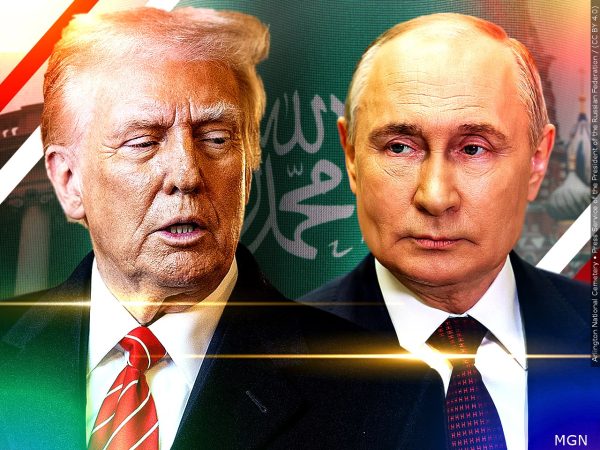Russian-American ballerina Ksenia Karelina has been released from a Russian prison as part of a rare prisoner exchange between the United States and Russia. The 33-year-old, who had been serving a 12-year sentence for treason after donating to a Ukrainian relief fund, landed back in the U.S.
Karelina was exchanged for Arthur Petrov, a dual Russian-German citizen who had been held in the U.S. on serious charges including export control violations, smuggling and money laundering.
The exchange took place in Abu Dhabi and was facilitated by high-level officials, including the Central Intelligence Agency Director John Ratcliffe with assistance from the United Arab Emirates.
“The exchange shows the importance of keeping lines of communication open with Russia, despite the deep challenges in our bilateral relationship,” Ratcliffe said.
The exchange has prompted mixed feelings, especially among students who are weighing the human impact against broader risks.
“This idea seems fair from the outside, but I see this leading to more issues than it is worth,” said Avery Jones, a sophomore mass communication major. “Yes, it may help bring Americans back home, but what happens if that becomes a hostage situation?”
Jones expressed concern that prisoner swaps could create dangerous incentives for foreign powers, particularly those who may see these exchanges as opportunities to use American citizens as bargaining chips.
“What if we have someone from another country in prison here for something, and an American gets arrested for something minor somewhere else so that that country can do a prisoner swap to get their person back?” Jones said. “In the long run, it’s not a great idea.”
Karelina’s arrest in January 2024 occurred during a family visit to Yekaterinburg, Russia. She was accused of treason for her donation, which Russian authorities claimed supported Ukraine’s military efforts.
While Karelina’s release shows that channels between Washington and Moscow remain open, researchers claim it should not be seen as a sign of improving relations. Despite the success of the exchange, it is unlikely to ease the broader geopolitical tensions between Russia, the United States and the North Atlantic Treaty Organization.
The practice of prisoner swaps has sparked debate among U.S. lawmakers and researchers, with concerns that such exchanges may encourage further detentions of Americans abroad.
Critics argue that trading innocent Americans for actual Russian criminals could send a dangerous message to Russian President Vladimir Putin, potentially incentivizing future hostage-taking.
“Bringing people home is great, but I’m just not sure it’s a good idea to set a precedent for these kinds of exchanges, ” said Ashley Bentz, a sophomore psychology major. “What if this just becomes something countries use to get what they want?”
Researchers claim that while this exchange may seem like a rare occurrence, it could encourage similar deals in the future, especially with the increasing number of Americans detained abroad for various reasons.
“I wouldn’t be surprised if we see more swaps like this in the future, but I think we need to have stricter rules in place,” Bentz said.
In the long run, this exchange could mark a turning point in how countries approach diplomatic negotiations, as more nations might try to use swaps as leverage to free their citizens or gain political favors.
These kinds of deals can also have a profound impact on the relationship between the countries involved in the exchanges. They can reinforce power dynamics, send signals about priorities and potentially create a precedent for future negotiations.
As the U.S. continues working on these efforts, the government is focused on bringing Americans home from overseas. However, with all the complexities of international relations and the risks involved in prisoner swaps, each situation will need to be carefully thought out to balance ethics and national security.


